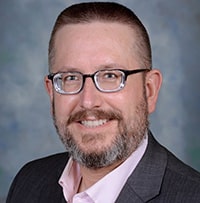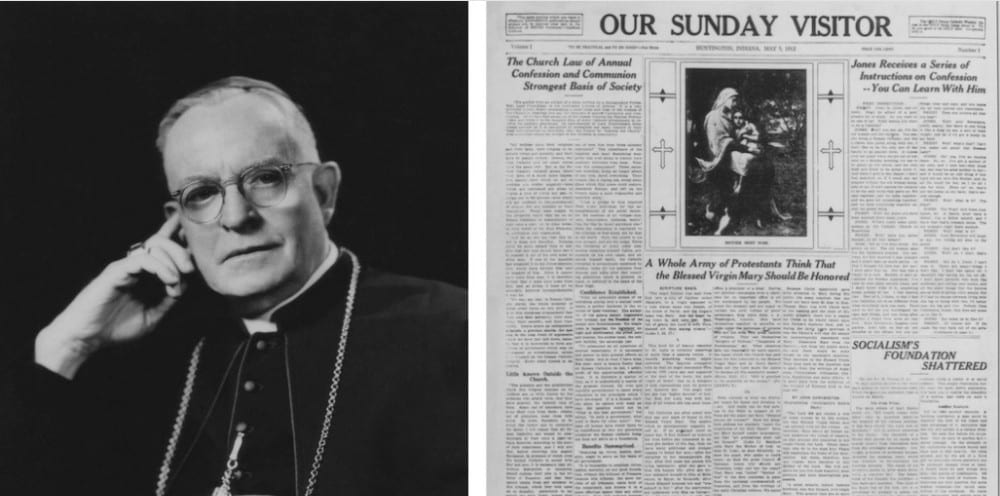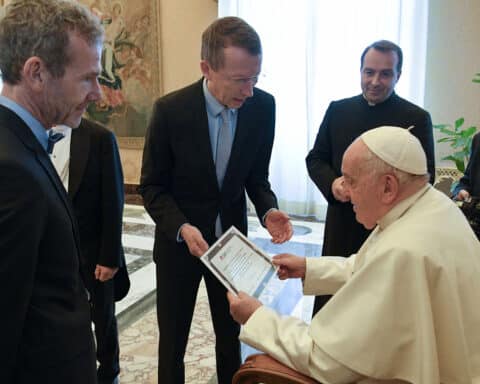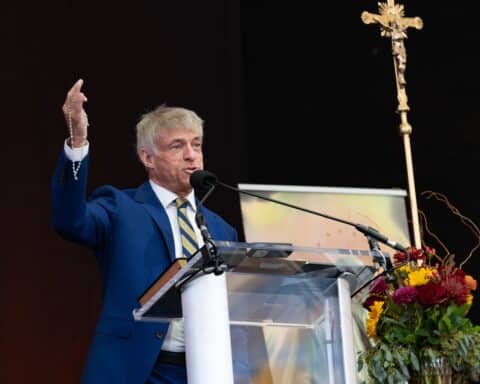
Thus began “A Word of Introduction by the Editor” in the very first issue of Our Sunday Visitor. Published 110 years ago, on May 5, 1912, these words by Father John Francis Noll could have been written yesterday. So, too, could the very next line: “And since our faith is in the greatest danger from our irreligious environment, from the many temptations of the world, and particularly from the anti-Christian literature which has daily entry into our homes, nothing, outside the Church’s sacraments, is so needful as a Printing Press devoted to the cause of truth, the refutation of error, one hard at work to produce the antidote.”
The motto printed on the masthead of that first issue is “To be practical and to do good.” Practical here means to be a “practical Catholic” (a phrase still used by the Knights of Columbus) — that is, to put our faith into action, rather than to hide it under a bushel basket. Today, we say that Our Sunday Visitor is “For Catholics Who Love Their Faith,” and that we do what we do to “form and inform” Catholics (and everyone of goodwill), by “speaking the truth in charity, in a way that unites.”
The idea that any media, including Catholic media, should be “devoted to the cause of truth, the refutation of error,” rather than to “telling both sides of the story” even when one is clearly false, rubs our modern sensibilities the wrong way. But the Christian life begins with an acknowledgment that Truth exists, and that He is a Person, and continues with a commitment to follow the Truth along the Way that leads to Life eternal. And that commitment must extend to placing that Truth “within the reach of those who have it not.” It is not our place as members of the Catholic media — or even just as Catholics, full stop — to promote that which stands against the Truth, even when we must acknowledge its influence on the culture and approach with charity those who fall into its errors.
In 1912, when Father Noll founded Our Sunday Visitor, the secular press made no claims to be “devoted to the cause of truth.” Over the next 50 years, as Our Sunday Visitor climbed toward its height of 1 million copies printed and distributed each week, respect for the paper and its founder grew not only within the Catholic Church in America (and abroad) but in American society. Archbishop Noll was a great man, but his greatness flowed from that same commitment to follow the Truth that each of us has made. That non-Catholics as well as Catholics viewed him and Our Sunday Visitor with such respect is, in its own way, an acknowledgment that the Catholic understanding of human nature is correct: In the depths of our soul, all men and women desire the truth, even if we all sometimes rebel against it.
Today, after decades in which the press upheld a certain pretense to “objectivity,” few would argue that the secular media is “devoted to the cause of truth.” Just as in 1912, that opens the way for the voice of a revitalized Catholic media to have a greater influence on society as a whole. We will not be able to do so, however, by adopting the pretense that the secular media has dropped. Instead, we must return to our roots, both as members of the Catholic media and as Catholics, full stop — by speaking the truth in charity to souls who are desperately seeking it.
Scott P. Richert is publisher for OSV.





